Understanding Caffeine Content In Lipton Tea
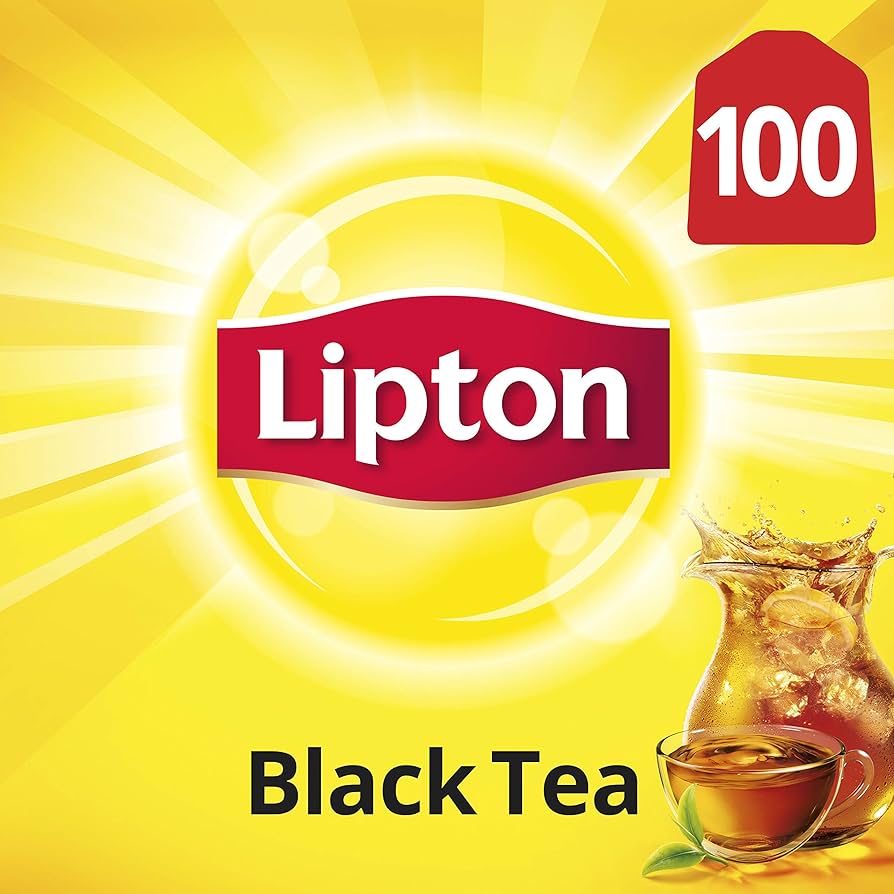
When it comes to understanding the caffeine content in Lipton Tea, it’s important to note that most Lipton teas contain caffeine, although the amount may vary depending on the type of tea. On average, an eight fl oz cup of Lipton Black Tea contains around 55-65 milligrams of caffeine. This amount can be influenced by factors such as brewing time and temperature. Lipton’s Green Tea, on the other hand, is known for its fresh and delicate flavor and also contains caffeine, although the exact amount may differ. Overall, Lipton tea generally contains about half the amount of caffeine found in coffee.
Lipton Tea Caffeine Levels Compared To Coffee
Lipton Tea typically contains about half the amount of caffeine found in coffee. An average eight fl oz cup of Lipton Black Tea has around 55-65 milligrams of caffeine, while a cup of coffee can have anywhere from 95 to 200 milligrams of caffeine. However, it’s important to note that the caffeine content in both Lipton Tea and coffee can vary depending on factors such as brewing time, temperature, and the specific brand. Ultimately, if you’re looking for a lower caffeine option, Lipton Tea can be a good choice compared to coffee.
Factors Influencing Caffeine Content In Lipton Tea
There are several factors that can influence the caffeine content in Lipton Tea. One of the main factors is the brewing time. The longer you steep the tea, the more caffeine will be extracted. Additionally, the water temperature can also play a role. Higher temperatures tend to result in higher caffeine extraction. The specific type of Lipton Tea can also affect the caffeine content, as different varieties may have varying caffeine levels. It’s important to consider these factors when brewing Lipton Tea to control your caffeine intake.
Types Of Lipton Tea And Caffeine Levels
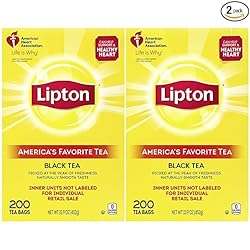
Lipton Tea offers a variety of options when it comes to tea choices, each with its own caffeine content. Here is an overview of the caffeine levels in different types of Lipton Tea:
- Black Tea: Lipton’s black tea is known for its bold and robust flavor. On average, an eight fl oz cup of Lipton Black Tea contains around 55-65 milligrams of caffeine.
- Green Tea: Lipton’s green tea has a lighter and more delicate taste. An eight fl oz cup of Lipton Green Tea typically contains approximately 20-35 milligrams of caffeine.
- Herbal Tea: Lipton also offers a range of herbal teas that are naturally caffeine-free. These teas are a great option for those looking to enjoy a hot beverage without the stimulating effects of caffeine.
Remember to check the packaging for specific caffeine information when choosing your preferred type of Lipton Tea.
Caffeine In Lipton Black Tea
Lipton Black Tea is well-known for its bold and robust flavor. It also contains a moderate amount of caffeine. On average, an eight fl oz cup of Lipton Black Tea contains around 55-65 milligrams of caffeine. However, it’s important to note that the caffeine content may vary depending on factors such as brewing time and temperature. So, if you’re looking for a tea option with a kick of caffeine, Lipton Black Tea is a great choice. Remember to adjust your brewing parameters based on your desired caffeine levels.
Caffeine In Lipton Green Tea
Lipton Green Tea offers a refreshing option for those who prefer a lighter and more delicate brew. Like black tea, Lipton Green Tea also contains caffeine, but in slightly lower amounts. On average, an 8-ounce cup of Lipton Green Tea contains approximately 35 milligrams of caffeine. It’s important to note that caffeine content can vary depending on individual brewing methods and personal preferences. So, if you’re looking for a milder tea with a moderate caffeine kick, Lipton Green Tea is a great choice. Adjust your brewing parameters to customize your caffeine intake.
Brewing Methods And Caffeine Extraction
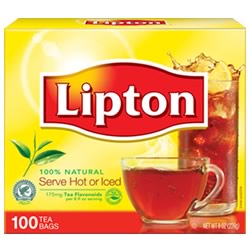
The caffeine content in Lipton Tea can also be influenced by the brewing methods used. The longer the tea is steeped, the more caffeine is likely to be extracted. Similarly, using higher water temperatures can increase the caffeine extraction. If you prefer a lower caffeine content, consider shorter brewing times or using cooler water. It’s important to note that these factors can also impact the flavor and strength of the tea, so it’s a matter of personal preference to find the right balance. Experimenting with different brewing methods can help you customize your caffeine intake.
Effect Of Brewing Time On Caffeine In Lipton Tea
The brewing time for Lipton Tea plays a significant role in determining the caffeine content. The longer you steep the tea, the more caffeine is extracted. This is because caffeine is a water-soluble compound that is released from the tea leaves during the steeping process. If you prefer a higher caffeine content, you can extend the brewing time slightly. However, it’s important to note that longer brewing times can also result in a stronger and more bitter flavor. Finding the right balance of brewing time is essential to customize your caffeine intake.
Impact Of Water Temperature On Caffeine Levels
The water temperature used to brew Lipton Tea can have an impact on the caffeine levels in the final cup. Generally, higher water temperatures result in more caffeine extraction from the tea leaves, while lower temperatures lead to less caffeine being released. So, if you prefer a milder caffeine content, using cooler water (around 175°F or 79°C) and steeping for a shorter time may be a good option. On the other hand, if you desire a stronger caffeine boost, hotter water (around 205°F or 96°C) and a longer steeping time can be utilized. Finding the right water temperature and steeping time combination allows you to customize your caffeine intake.
Decaffeinated Lipton Tea Options
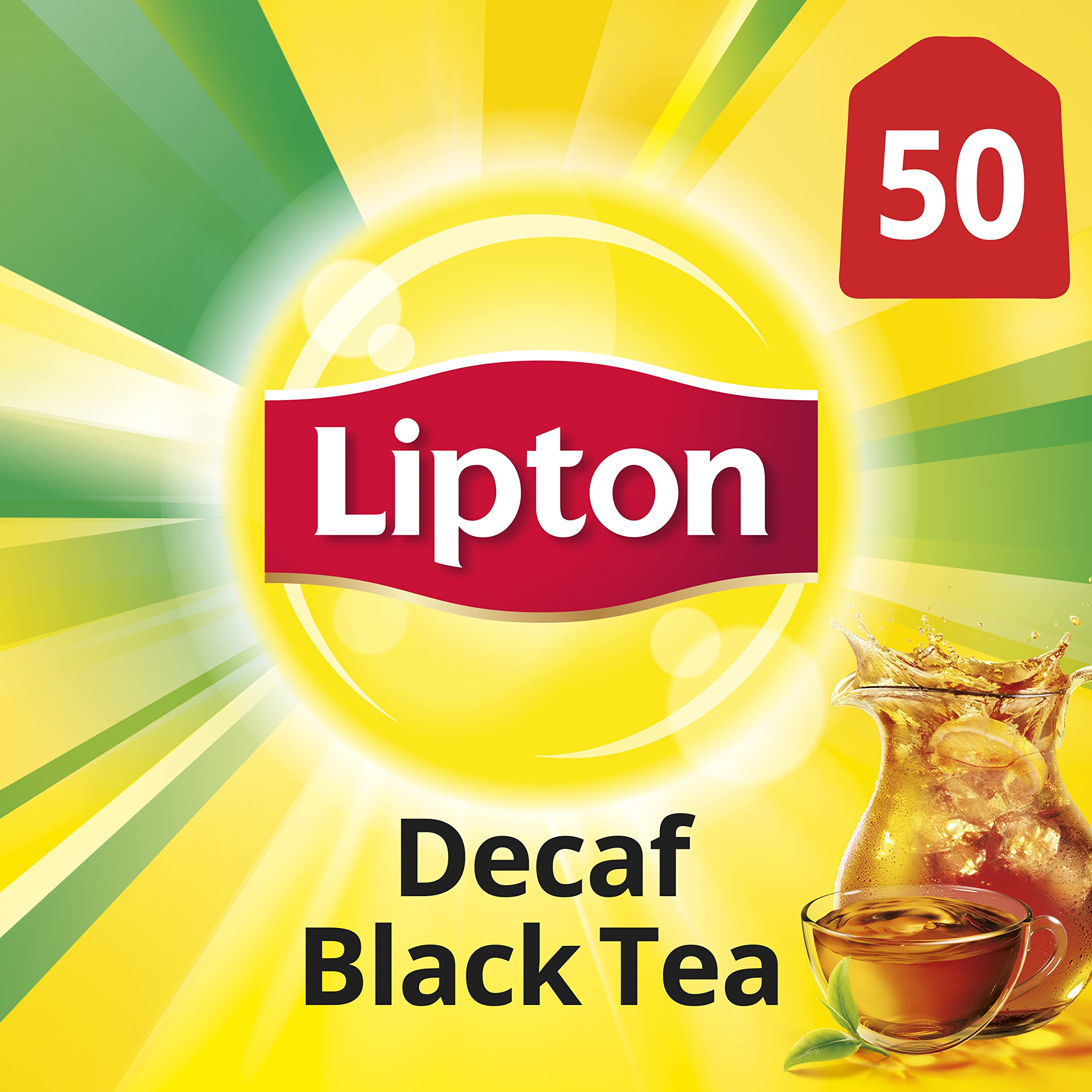
Lipton also offers decaffeinated options for those looking to enjoy the taste of tea without the caffeine. The process of decaffeinating Lipton Tea involves removing most of the caffeine while preserving the flavor. Decaf Lipton Tea is a great choice for individuals who are sensitive to caffeine or prefer to limit their intake. It is important to note that the caffeine levels in decaf Lipton Tea are significantly lower than in regular Lipton Tea. Opting for decaffeinated Lipton Tea allows you to enjoy a cup of tea any time of the day without the stimulating effects of caffeine.
Process Of Decaffeinating Lipton Tea
Decaffeinating Lipton Tea involves a natural process that removes most of the caffeine while preserving the flavor. The exact method used may vary, but commonly, it includes the following steps:
- The tea leaves are soaked in water to release their natural compounds.
- The water is then treated with a solvent (such as carbon dioxide or ethyl acetate) that selectively removes caffeine molecules.
- The solvent is washed away, leaving behind decaffeinated tea leaves.
- The tea leaves are dried and processed to create decaf Lipton Tea bags or loose tea leaves.
By undergoing this decaffeination process, Lipton Tea offers a delicious option for those looking to enjoy tea without the stimulating effects of caffeine.
Caffeine Levels In Decaf Lipton Tea
Caffeine levels in decaf Lipton Tea are significantly lower compared to regular tea. During the decaffeination process, most of the caffeine is removed from the tea leaves, resulting in a beverage with minimal caffeine content. Decaf Lipton Tea typically contains around 4 to 5 milligrams (mg) of caffeine per 8-ounce cup, which is significantly lower than the caffeine content in regular tea. This makes decaf Lipton Tea a great option for those looking to enjoy the taste of tea without the stimulant effects of caffeine.
Comparing Caffeine Content In Lipton Tea To Other Teas
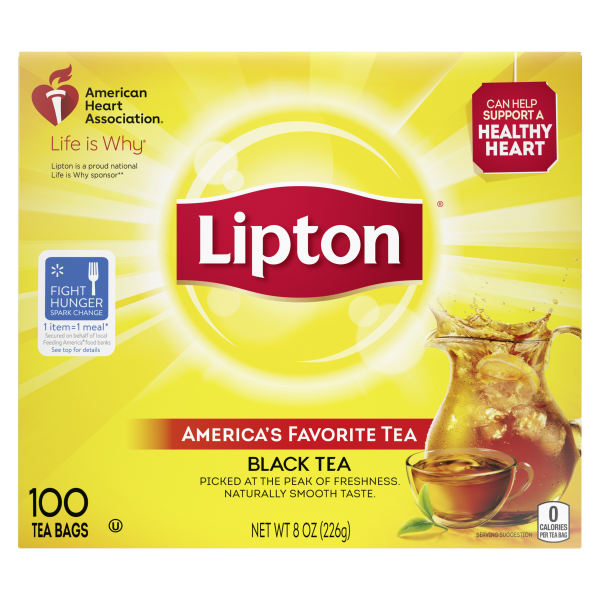
When comparing the caffeine content of Lipton Tea to other popular teas, it is important to note that Lipton Black Tea generally contains more caffeine than other varieties. For example, compared to Earl Grey Tea, Lipton Black Tea tends to have higher caffeine levels. On the other hand, when compared to Matcha Tea, Lipton Tea usually has lower caffeine levels. It’s important to keep in mind that these comparisons can vary depending on the specific brand and brewing methods used. It’s always a good idea to read the label or consult the brand’s website for more accurate information.
Caffeine In Lipton Tea Vs. Earl Grey Tea
When it comes to comparing the caffeine content in Lipton Tea to Earl Grey Tea, Lipton Black Tea generally contains higher levels of caffeine. While Lipton Black Tea has around 17-38 mg of caffeine per 8 fl oz, Earl Grey Tea typically contains 14-24 mg of caffeine. However, it’s important to note that these caffeine levels can vary depending on the specific brand and brewing methods used. If you’re looking for a tea with lower caffeine content, Earl Grey Tea might be a suitable option compared to Lipton Black Tea.
Caffeine In Lipton Tea Vs. Matcha Tea
Matcha Tea is known for its high caffeine content compared to Lipton Tea. While Lipton Black Tea contains around 55-65 mg of caffeine per 8 fl oz, Matcha Tea can have up to three times more caffeine, with approximately 130-160 mg per serving. This is because Matcha Tea is made from ground whole green tea leaves, resulting in a higher concentration of caffeine. If you’re looking for a tea with lower caffeine content, Lipton Tea might be a better option compared to Matcha Tea.
Conclusion
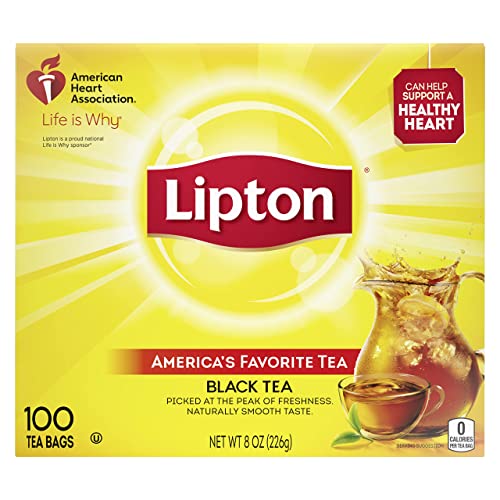
In conclusion, Lipton Tea offers a range of options for tea lovers with varying caffeine preferences. Whether you prefer a bold cup of black tea or a refreshing sip of green tea, Lipton has you covered. It’s important to be mindful of the caffeine content in Lipton Tea and adjust your consumption accordingly to meet your personal needs. By understanding the factors that influence caffeine levels and exploring decaffeinated options, you can enjoy Lipton Tea while controlling your caffeine intake. Remember to consult the packaging or labels for accurate information on caffeine content in Lipton Tea.
Tips For Controlling Caffeine Intake From Lipton Tea
- Choose decaffeinated options: If you’re looking to reduce your caffeine intake, opt for decaffeinated Lipton Tea. These varieties undergo a process that removes most of the caffeine while retaining the rich flavors.
- Shorten brewing time: The longer you brew Lipton Tea, the more caffeine it extracts. If you’re sensitive to caffeine, reduce the brewing time to minimize its presence.
- Use cooler water: Hot water extracts more caffeine from tea leaves. To lower caffeine content, brew Lipton Tea with slightly cooler water instead. This can help reduce the overall caffeine levels in your cup.
- Explore herbal or caffeine-free blends: Lipton offers a variety of herbal and caffeine-free blends such as chamomile or peppermint. These options provide a soothing tea experience without the stimulating effects of caffeine.
- Limit consumption: Be mindful of how much Lipton Tea you consume in a day. If you’re concerned about caffeine intake, consider enjoying Lipton Tea in moderation or switching to other caffeine-free beverages later in the day.
FAQ About How Much Caffeine In Lipton Tea: Understanding Tea Strength
Q: How much caffeine is typically in Lipton tea?
A: The caffeine content in Lipton tea can vary depending on the type and brewing method, but on average, a cup of Lipton tea contains around 55 milligrams of caffeine.
Q: Does the brewing time affect the caffeine content in Lipton tea?
A: Yes, the longer you brew Lipton tea, the higher the caffeine content may be. Steeping for longer periods allows more caffeine to be extracted from the tea leaves.
Q: Are there any Lipton tea variants that are caffeine-free?
A: Yes, Lipton offers caffeine-free herbal teas such as chamomile, peppermint, and rooibos that do not contain any caffeine.
Q: How does the tea strength impact the caffeine content in Lipton tea?
A: The tea strength, which refers to how strong or weak you brew the tea, can affect the caffeine content. A stronger brew typically contains more caffeine compared to a lighter brew.
Q: Is decaffeinated Lipton tea completely caffeine-free?
A: Decaffeinated Lipton tea still contains a small amount of caffeine, usually around 2-5 milligrams per cup, due to the decaffeination process not being 100% efficient.
Q: Does Lipton provide information on caffeine content on its packaging?
A: Yes, Lipton typically includes information on the approximate caffeine content of their teas on the packaging to help consumers make informed choices.

Southern Brew Coffee Co is a vibrant and inclusive community-driven coffee company that has been brewing up a storm since its establishment in 2010. With a passion for bringing people together over a great cup of coffee, Southern Brew has become a beloved fixture in the local coffee scene. The journey of Southern Brew Coffee Co began when two friends, Sarah and Michael, shared a vision of creating a space where people could connect, relax, and savor the simple pleasure of a perfectly brewed cup of coffee. What started as a humble coffee cart quickly grew into a bustling coffee shop, thanks to the warm embrace of the local community.